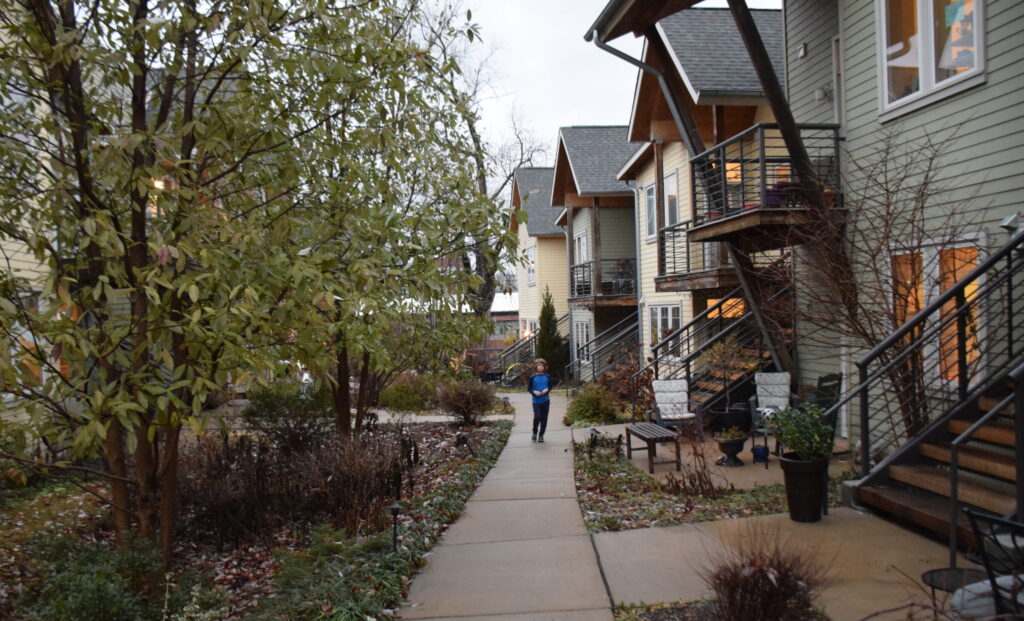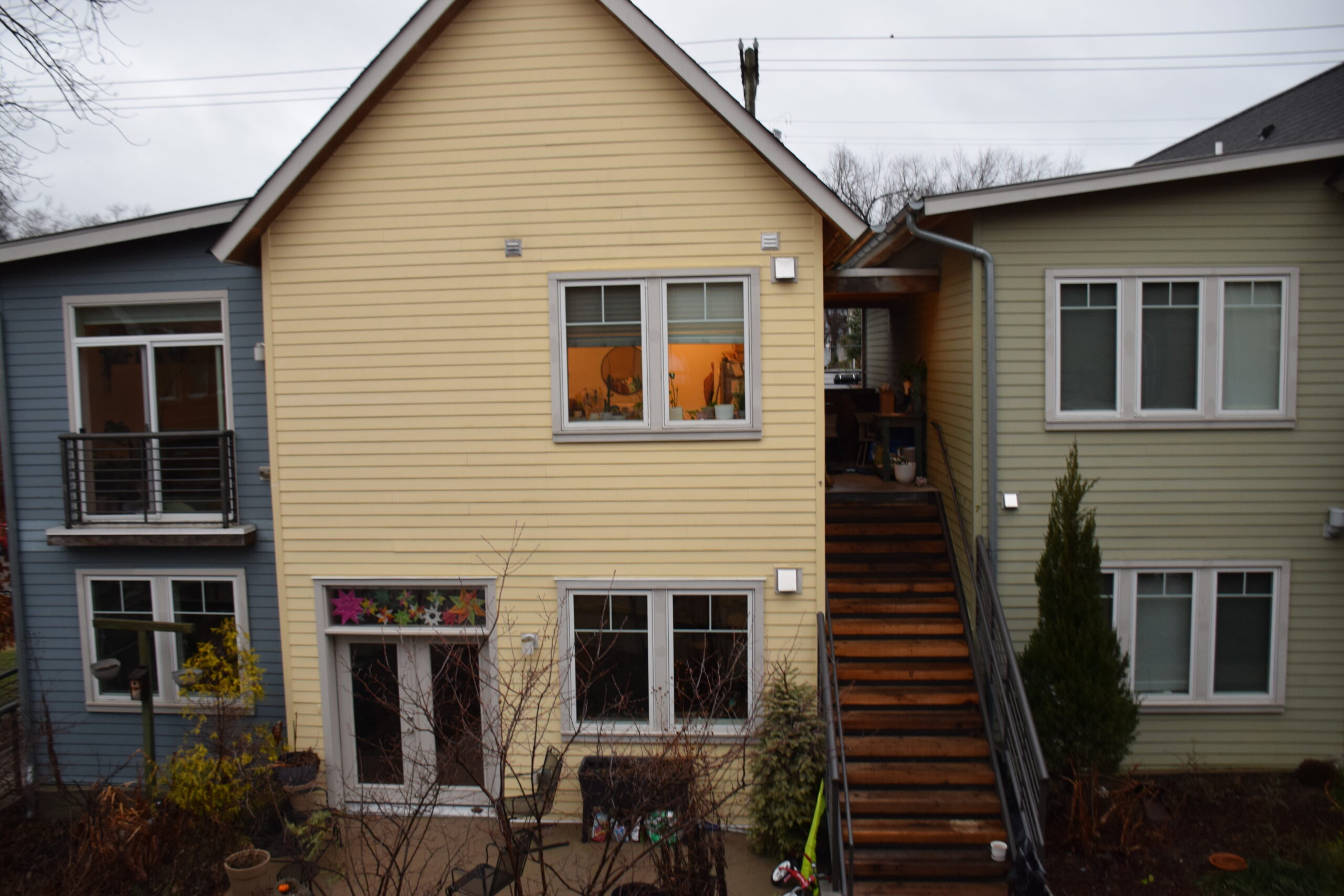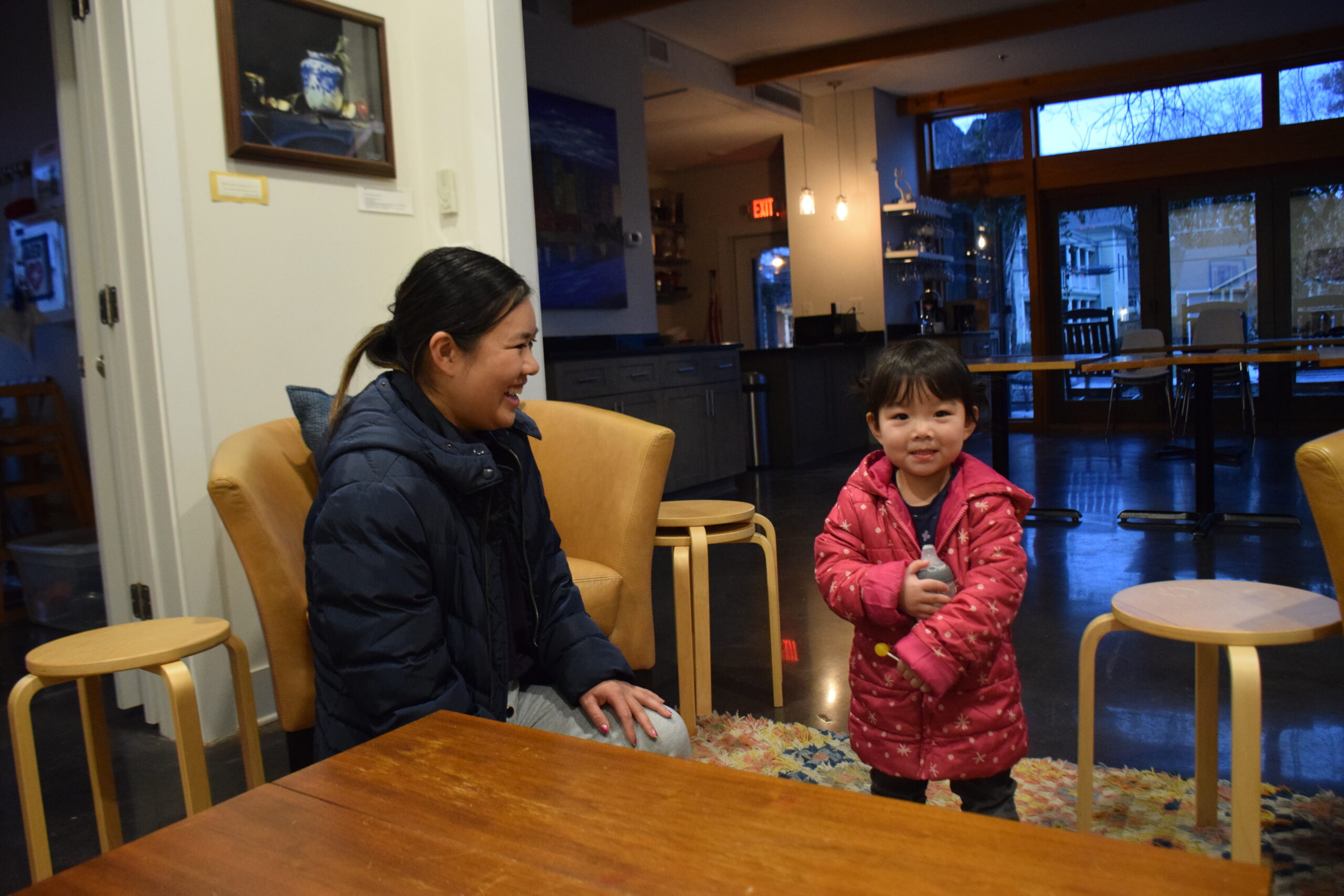
It’s a warm Friday night in Nashville’s Germantown neighborhood. Just a few blocks from raucous bars and restaurants, families are gathered outside of their “common house” for an ice cream social. Kids run around. Adults chat and check-in on one another.
There’s a neighborly friendliness — as is typical at the Germantown Commons, a co-housing community nearing its tenth anniversary.
The 25 condos, quietly fenced in on 5th Avenue North, house residents that serve on committees (like the one that called for the ice cream gathering), share the “common house” space and often make consensus decisions.
Yet their condos, which look out onto a leafy courtyard, are not lacking in any private resources. They are all fully functioning homes — with multiple bedrooms, bathrooms, living spaces and a kitchen.
From the outside, it might not seem that different from a typical apartment complex. What sets it apart is the ethos of those moving in.
“It’s a concept about a collaborative neighborhood where you actually know your neighbors and the idea is that makes it a better place for everybody,” says Katie McCamant, an architect and developer known for introducing the concept of co-housing to the United States. “I think one of the reasons that people find co-housing so attractive is that you can kind of choose how much community and how much privacy you need, but you’re adding in an easy community to plug into because of proximity.”
McCamant argues that living communally is actually the way it’s been done for a long time.
“The idea that everybody is supposed to have a single-family house that you maintain, you do all the cooking, you do all the shopping, you do the raising the kids and earn the money in your little bubble,” McCamant says, “it’s not the way humans have ever lived.”
Co-housing offers an attempt at subverting the individualistic lifestyle. Today, there are around 180 of these communities nationwide, although only one in Nashville.
Getting off the ground can be tough. That’s where McCamant comes in — she’s often hired by groups like Germantown Commons — to help kick-start planning and construction.
It’s difficult for many reasons: new construction is not cheap. And, oftentimes, the people interested in building co-housing have their assets tied up in their current home. Plus, there’s also the long planning process. And the general novelty of it all.
“Traditionally, housing is a very conservative choice for most people. It’s not where people take risk,” McCamant said. “And most Americans have still never heard of co-housing.”
But once it’s all said and done many residents say there’s ample reward.
In Germantown Commons, the first resident, Dot Dobbins, moved in after her husband died and she found herself unhappy living alone.
“You will have people that become your best friends,” Dobbins says. “Not everybody in the whole community will be your best friends, but you will know everybody in the community.”
Not all residents have remained as long as Dobbins. But turnover has allowed for new members, like 30-year-old Jessica Nazzareno, to join the community.
 Cynthia Abrams WPLN News
Cynthia Abrams WPLN NewsOne of Germantown Common’s youngest members in the community’s Common House.
“It’ll be like a Friday night. And my friends will be like, ‘You want to go out?’ and I’m like, ‘No, I’m hanging out with my neighbors,’ ” Nazzareno said.
Despite their enthusiasm, co-housing remains pretty rare in Tennessee, as it can take time for each new community to become reality.
In Dickson County, a group has been working for five years to establish a co-housing community: “Burns Village.” With plans to construct around thirty homes on an existing 150-acre farm, the feel is pretty different from Germantown.
John Patrick, who is leading the effort, says its a way to live in rural Tennessee and still maintain a strong community — as well as support a working farm.
“This is a CSA on a different level,” Patrick said. “You have a whole community that could be helping a farmer, whether it’s financially or whether they go out there and dabble a little bit, pull a few weeds, plant.”
Despite the differences in setting, the sentiment is largely the same.
“Just knowing who your neighbors are and they know who you are,” Patrick said. “It’s just a more meaningful life.”
Burns Village is currently in the planning phase, working with McCamant to get off the ground. They hope to start construction in early 2026, and begin fostering that sense of community.

